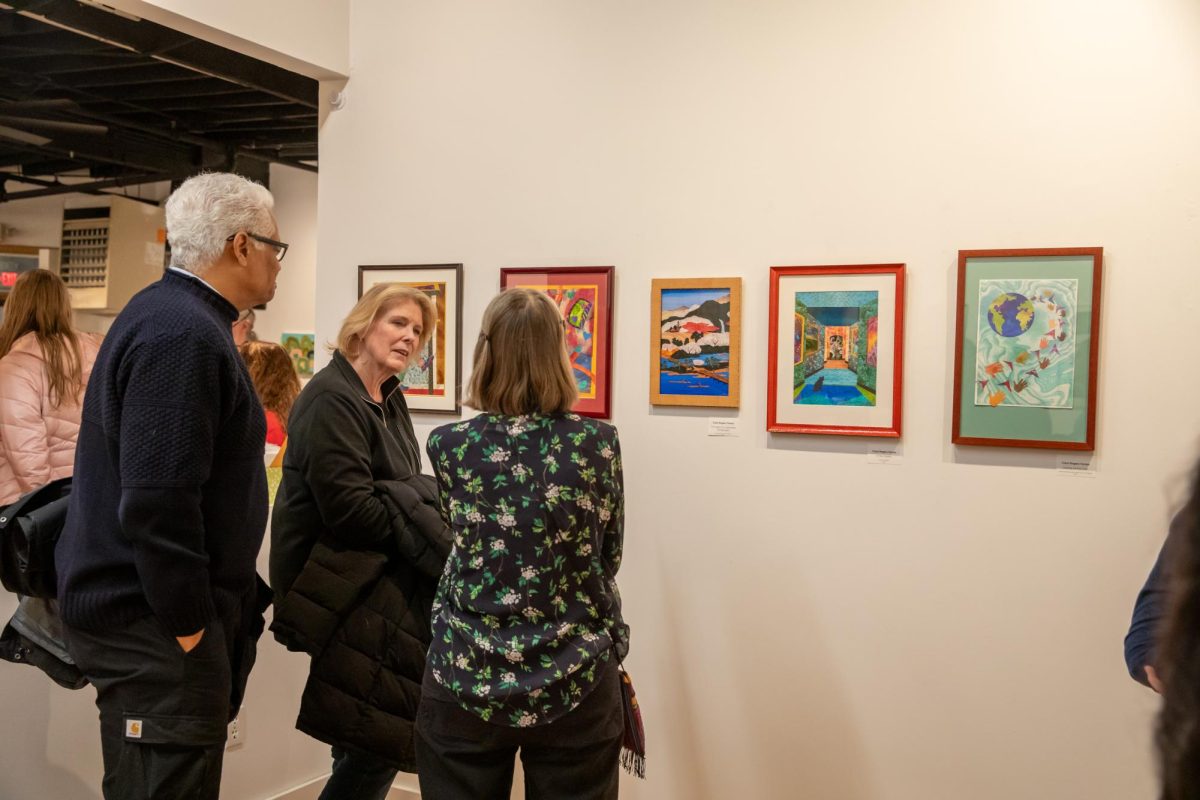Minnesotans aren’t fond of bragging, but the Twin Cities Book Festival aims to change that when it comes to the state’s literary scene.
“I think people are really interested in not only forwarding their own work, but in supporting each other and supporting an ecosystem of literature that is good for everyone,” Twin Cities Book Festival director Eric Lorberer said.
For the last 15 years, Lorberer and the staff at local literary magazine “Rain Taxi” have thrown the Twin Cities Book Festival as a way to bring together the Twin Cities’ best
literature for one large — yet intimate — event.
“It’s hard to engineer,” Lorberer said. “But it’s a great cause for celebration to bring so many strands together.”
In addition to big name authors like Susan Cheever and Jabari Asim, the Twin Cities Book Festival also showcases authors with a smaller audience.
“The household names all have to start somewhere,” Lorberer said. This year’s festival features over 120 exhibitors and many authors from every genre, age group and sexual orientation, providing a glimpse of the literary community in the Twin Cities and beyond.
Diverse voices, diverse words
Boston author, poet and playwright Asim is speaking at the festival following the release of his debut novel, “Only the Strong,” earlier this year, which is set during 1970 in a fictionalized version of Asim’s hometown of St. Louis, Mo., called Gateway City.
Asim introduced Gateway City in “A Taste of Honey,” a collection of short stories published directly before “Only the Strong” and taking place 10 years before.
“What I’m hoping to do is tell the story of a community decade by decade,” Asim said.
Despite its setting in a fictional city more than 40 years ago, “Only the Strong” remains relevant. Like much of Asim’s work, “Only the Strong” illustrates issues of race in
America. Rain Taxi, like most readers, heard of Asim after the publication of his 2007 nonfiction book, “The N Word.”
“Just to have a writer who is thinking about issues of race and how that transfers over to language and prose. … That’s really exciting,” Lorberer said.
Where Asim uses a fictionalized past to shed light on the present, Vermont author and festival speaker Susan Cheever challenges readers to look at history unconventionally: through the bottom of a glass.
Her new nonfiction book “Drinking in America” traces America’s history with alcohol from the very beginning.
“[The pilgrims] landed in Cape Cod because they were running out of beer,” Cheever said, excitedly leaping from one historical event to another.
“I studied American history a lot, and I know a little bit about alcoholism,” Cheever said. “But when I put them together, it was just like a string of firecrackers.”
During his famous ride, Paul Revere stopped at Isaac Hall’s tavern for a couple of rums. Senator Joe McCarthy, who fueled the second Red Scare with accusations of communism during the Cold War, was an alcoholic, which led to his death.
“I hope that when people look up from reading the last page of a book of mine, they’ll see the world in a new way,” Cheever said. “Now, that’s a hopelessly high ambition, but that’s what I’m aiming for.”
“[The festival] celebrates the fact that not every book is for everyone,” Lorberer said. “But I guarantee there is a book for everyone at this festival.”







